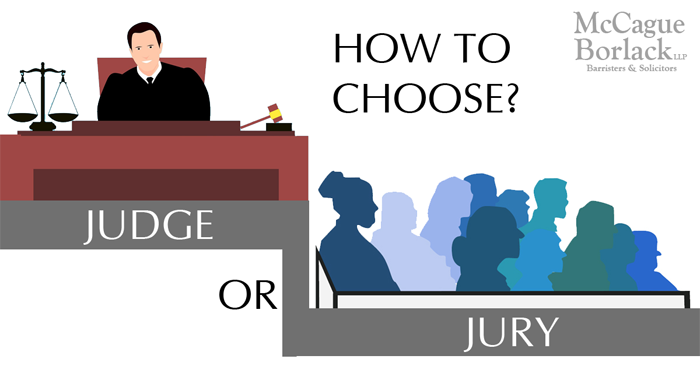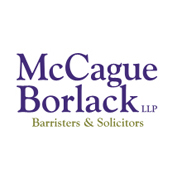By Martin Smith and Desneiges Mitchell
First presented at the 2022 Canadian Chiropractic Protective Association Legal Conference
Introduction
There has been a shift in attitudes towards juries in medical malpractice cases over time. In 1998, the America Medical Association, a professional association and lobbying group for physicians and medical students, explained their position as follows:
Juries are not optimally suited to decide the complicated issues of causation and duty of care. ...With respect to the major elements of liability – duty of care and causation – the parties must present expert testimony, which the jurors cannot evaluate independently."1
This captures the past prevailing view in Canada as well: why would a defendant want laypersons with no legal training, and likely no medical training, to decide their case? At a minimum, judges have extensive legal training and may have experience, either in their pre-judicial careers or on the bench, with these matters.
However, after numerous studies regarding juries, the predominant view has evolved. As a result, there ought to be a nuanced, case-by-case consideration of the appropriateness of a jury by the defence in cases alleging chiropractic negligence.
The Common Law Origin of Juries
Juries, from the Latin iurare, meaning "to swear", first emerged in England during the Middle Ages. Back then juries were "self-informing": rather than attending a trial, the jurors investigated the matter themselves.2
In 1215, the Magna Carta set out the charter of English liberties held by "free men" which included a right to a trial by one's peers in order to prevent the king's absolute control of the courts., Trial by jury did not start in earnest until more than a century later, though its implementation was not refined for some time.
If there were no witnesses to a crime, there was no jury. |
For example, up until 1272, jurors in England were actual witnesses to a crime. The verdict was given based on their own observation and knowledge of the issue. If there were no witnesses to a crime, there was no jury.3
Early in the jury system, an accused was required to consent to be tried by a jury. However, the choice was illusory. Coercive methods were used including the loading of heavy stones on the accused's chest. Since the consequence of a guilty verdict was the confiscation of all the accused's property, some chose to die rather than be tried by a jury. If there was no trial, there was no forfeiture, and the estate would be passed on to the accused's heirs.4
The United States Constitution entrenches the right to a trial by jury.
In Canada, a right to a jury is found in our Charter of Rights and Freedoms but is heavily circumscribed. Section 11(f) of the Charter enshrines a constitutional right to jury cases where an accused faces a prison sentence of five years or more. There is no constitutional right to a jury trial in civil cases, though it is made available.5
Juries in Medical Malpractice Cases in Canada
It used to be the case that juries were never used in medical malpractice cases. The defendant would move to strike any jury notice issued by the plaintiff and would be successful.
Almost forty years ago, in Soldwisch v. Toronto Western Hospital et al.,6 the Divisional Court considered the existing practice that precluded trial by jury of medical malpractice cases.7
The Divisional Court stated that it was a well-known fact that for years in Ontario it has been accepted that medical malpractice cases could not be tried with a jury.8 The Divisional Court explained:
Perhaps the many, many cases that have followed [this practice] can best be rationalized by the thought that by their very nature medical malpractice cases generally are so technically complex that it may be unrealistic to expect that a jury could reasonably be expected to follow, comprehend, analyze and weigh the conflicting and often confusing testimony of experts in a highly scientific area of activity.9
In that case, the Divisional Court left the door open for a medical malpractice case to be tried by a jury. However, in the case before them, they agreed that it should be heard by a judge-alone on the basis that there were complex medical problems and difficult legal issues.
Over time, judicial views on complexity and difficulty evolved. |
Over time, judicial views on complexity and difficulty evolved. By way of example, in Gutbir v. University Health Network,10 the judge considered a $12 million dollar claim against a hospital in relation to a birth. The doctor involved was alleged to have failed to properly monitor a baby during delivery and performed a high forcep rotation delivery instead of a Caesarian section, resulting in disability.
The Hospital brought a motion to strike the jury notice delivered by the plaintiff on the basis that there were complex legal issues as well as eighteen expert witnesses. The Hospital argued that it was obvious that the complex scientific and medical evidence was beyond the ability of a jury to decide.11
The judge in Gutbir held that she was not in a position to determine whether or not a jury was capable of answering the questions that it would be tasked with answering. The judge held that a "wait and see" approach was appropriate. Citing the Court of Appeal of Ontario, she stated:
"...Experience has shown that in many instances the anticipated complexities of a case or other concerns giving rise to a motion to dismiss a jury do not materialize or at least not to the extent originally asserted. By "waiting and seeing", courts are better able to protect the substantive right of the party who wants a jury trial and to only dismiss the jury when it becomes necessary to do so. Obviously, there is merit to taking a "wait and see" approach in some cases, and perhaps in most."12
Though it was adopted at various times in various provinces, the prevailing view is now that a reasonably educated jury is just as capable of assessing expert medical testimony as a judge. The courts have held that a judge is not an expert in medicine and is faced with the same difficulties as a jury.
Canadian vs American Juries
Most Canadians' experiences with juries are based on the consumption of American media. |
American litigators are generally proponents of jury trials. Most Canadians' experiences with juries are based on the consumption of American media. There are numerous meaningful differences between the two countries that should affect one's consideration of whether a jury is appropriate in a particular case in Canada.
First, it is important to note that there are some differences between the provinces. In Quebec, for example, juries are not available in civil cases. Given the author is counsel from Ontario, the Ontario rules are what are cited herein.
In the United States, prospective jurors can be questioned not only about any potential conflict in the case, but also about their general beliefs. The judge can exclude anyone whose attitudes would interfere with his or her duties as a juror.
It is important to note, that t is not the same here.
In Ontario, jurors are not asked questions about their backgrounds, views, politics, etc. While the parties each have four peremptory challenges, permitting them to exclude a potential juror that is randomly selected up to four times, the parties know very little about the pool of jurors who have been randomly selected.
The jury source list is prepared by the Minister of Health and Long-Term Care from persons registering an insured person.13 The Juries Act,14 states, inter alia, that a juror has to be 18 years of age at the beginning of the year in which the jury is selected, a Canadian citizen, etc. Ineligible jurors include lawyers, medical practitioners and veterinary surgeons who are actively engaged in practice, as well as firefighters, etc.15 Individuals are also ineligible if they have been called for jury service in the last three years,16 are physically or mentally unable to discharge the duties and cannot be reasonably accommodated17 or have been convicted of an offence that may be prosecuted as an indictment unless they have been granted a record of suspension or pardon.18
The parties know that the potential pool of jurors conforms to the above rules, but not much else. In Ontario, litigants can access the list of potential jurors, including their name and occupation, up to 10 days prior to the sitting.19
It is often a long list and researching the background of each prospective juror is virtually impossible. When challenging jurors, counsel are necessarily engaging in making assumptions based on profession, age, and/or appearance.
The Case for Juries in Medical Malpractice Cases
It used to be the case that juries were sought after by plaintiffs and resisted by defendants in medical malpractice cases. There was a commonly accepted misconception that juries would be influenced by sympathy for a plaintiff and be hostile towards the medical professional.
Research completed on this issue has shown this assumption, based on intuition, was incorrect. Given the use of juries in the United States, most of the research is American. Nonetheless, it provides helpful insights.
jurors who served on medical malpractice trials described their attitudes followed two main themes... |
In one study, jurors who served on medical malpractice trials described their attitudes followed two main themes: "too many people want to get something for nothing, and most doctors try to help people and should not be blamed for simple human misjudgment or a momentary lapse of concentration."20
Studies have also shown that juries engage with the material before them. This should not be a surprise based on the popularity of medical television programs. Jurors are not inclined to simply defer to experts because of their expertise. They were skeptical and made decisions based on various considerations including the expert's qualifications, reasoning, factual familiarity and impartiality. The research did not support the argument that jurors are naïve, superficial, or gullible.21
Given studies support that juries are reasonable decision-makers in medical malpractice cases, the next obvious question is what are the outcomes?
There are approximately 17,000 medical malpractice cases are filed in the United States each year. More than 99% of U.S. surgeons are faced with one instance of malpractice litigation throughout their careers.22 As a result, much research has been done about outcomes.
Interestingly, regardless of the physical ailment blamed on the medical professional, the outcomes are generally very similar.
In Jury Trial Outcomes for Medical Malpractice Involving Pulmonary Embolism, the author, a medical doctor and a legal academic, studied 72 medical malpractice cases involving pulmonary embolism. He selected pulmonary embolism because it is complex, controversial and often fatal. The defendants won 69% of the time in jury trials.
Neurosurgeons face the highest probability of facing a medical malpractice claim. In a similar review of jury cases involving neurosurgery, the defendants were successful 72.9% of cases.23
Interestingly, in a much broader and older study that examined 1,886 medical malpractice jury verdicts, the defendants won 67.6% of the time.24
In another more recent study, the defendants won 73% of the time. However, the same study noted that when the plaintiffs won, the jury's median award was well above median awards in torts and other civil lawsuits.25
While these are favourable numbers for defendants in medical negligence claims, it is important to remember that the majority of cases settle. If a matter is proceeding to trial, there is usually a strong defensible case (or the plaintiff has rejected reasonable offers), and as a result, it is unsurprising that the defendants would prevail.26
Another benefit of a jury is that if a party selects a jury, the parties do not have to wait months for a decision. The parties will receive a decision a short time after closing arguments.
The Case against Juries
Jury trials are longer and therefore more expensive... |
Jury trials are longer and therefore more expensive than judge-alone trials. As a result, it is important to understand whether or not there is really a strategic advantage.
Some studies have been conducted whereby trial judges are asked to make independent assessments of who should have prevailed in civil cases over which they presided. The judge's views were solicited while the jury was still deliberating and therefore were unbiased. The findings indicate that there was high agreement between the judge and the jury.27 Many would ask: if your chances with a judge are the same as a jury, then why go to the extra expense?
Moreover, if you are unsuccessful at trial, it is extremely difficult to overturn a jury's decision. A judge has to provide reasons for their judgment and show the thought process that led to the outcome. It means the decision can be reviewed and understood. If there are issues, the decision can be appealed.
A jury does not provide reasons. The Supreme Court of Canada has explained that a civil jury's verdict should be set aside only where it is so plainly unreasonable and unjust that no jury reviewing the evidence as a whole and acting judicially could have arrived at the verdict.28 That is a very high bar, particularly in medical negligence cases. The parties have a much better chance of appealing a judge-alone decision.
The Future of Juries
Juries are becoming less and less common, particularly as a result of the backlogs created by COVID-19, when juries were not sitting for an extended period of time.
Plaintiff side advocacy groups are advocating for an end to juries in most civil actions (but not medical malpractice) in order to reduce the backlog in the courts. The provincial government is studying the possible elimination of juries in certain civil cases. Given the focus on eliminating backlogs, juries are likely to become less and less common in most civil matters and parties can expect to be asked at a pre-trail whether or not they are willing to forgo a jury.
How to Decide?
Either party can file a jury notice, it does not have to be on consent. As a result, a defendant has no option other than preparing for a jury trial when a jury notice is served by a plaintiff.
In Ontario, the Rules of Civil Procedure require that a party requiring a jury must deliver the notice before the close of pleadings. This is very early in the matter before all information is known.
Given that a jury notice is served very early on in litigation, well before the discovery process, there is a limit to what is known. Here are some questions to consider:
- What do we know about the case?
- Immediate cooperation with the assigned lawyer and full disclosure will assist with the strategic decision into serving a jury notice.
- Immediate cooperation with the assigned lawyer and full disclosure will assist with the strategic decision into serving a jury notice.
- Why did the plaintiff not serve a jury notice?
- The plaintiff files the first pleading and as a result, they have an opportunity to serve a jury notice first.
- Is there something about the plaintiff that is unsympathetic? Studies show that juries are unsympathetic towards smokers and obese plaintiffs, for example, when the injury is related to these factors (i.e. a stroke).
- Does the plaintiff's counsel have any jury experience?
- What are the defence counsel's experience and track record with juries?
- What is the defendant's personality?
- How will the client come across in front of a jury? (This can be worked on to a degree.)
- Judges have seen countless witnesses and parties give evidence. They are likely to be less concerned with body language (i.e. nervousness, or absence of charisma).
- Do you have a good legal case? For example, there have been recent cases enforcing waivers in different contexts.
- Is a jury made up of individuals who will have experienced signing waivers without reading them as likely to uphold a waiver?
- Are you likely to bring the waiver issue as a summary judgment motion prior to trial? (In which case it will be decided before a jury would be involved.)
- Vidmar N. Juries and medical malpractice claims: empirical facts versus myths. Clin Orthop Relat Res. 2009;467(2):367-375.
- Michelle I Bertrand et al, "We have centuries of work undone by a few boneheads": A Review of Jury History, a Present Snapshot of Crown and Defence Counsel Perspectives on Bill C-75's Elimination of Peremptory Challenges, and Representativeness Issues, 2020 43-1 Manitoba Law Journal 111, 2020 CanLIIDocs 2554, p.119.
- Ibid, p.119.
- Ibid, pp.119-120.
- The Constitution Act, 1982, Schedule B to the Canada Act 1982 (UK), 1982, c 11.
- 1983 CanLII 1684 (ON SCDC).
- Ibid, at para. 1.
- Ibid, at para. 5.
- Ibid, at para. 12.
- 2010 ONSC 6035.
- Ibid, at para. 46.
- Ibid, at para. 53.
- Juries Act, RSO 1990, c. J.3, s. 4.1.
- Ibid.
- Ibid, s. 3.
- Ibid, s. 3(4).
- Ibid, s. 4(a).
- Ibid, s. 4(b)
- Ibid, s. 18(3).
- Supra, note 1.
- Ibid.
- Akhil Sharma, Keith G. Whitlock, Mark J. Gage, Tally E. Lassiter, Oke A. Anakwenze, Christopher S. Klifto, "Malpractice trends in shoulder and elbow surgery" Journal of Shoulder and Elbow Surgery. Volume 30, Issue 9, 2021, pages 2007-2013,
- Thomas, Ranjit, et al. "Medical Malpractice in Neurosurgery: A Comprehensive Analysis" World Neurosurgery, vol. 110, Elsevier Inc, 2018, pp. 552–559.
- Stephen Daniels, "Tracing the Shadow of the Law: Jury Verdicts in Medical Malpractice Cases" Justice System Journal, 14 Just. Sys. J. (1990-1991).
- Supra note 1.
- Ibid.
- Ibid.
- Housen v. Nikolaisen, [2005] 2 SCR 235 at para.30.


